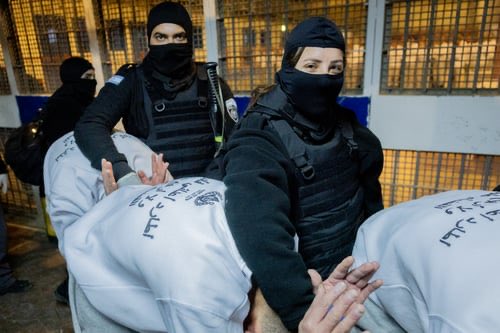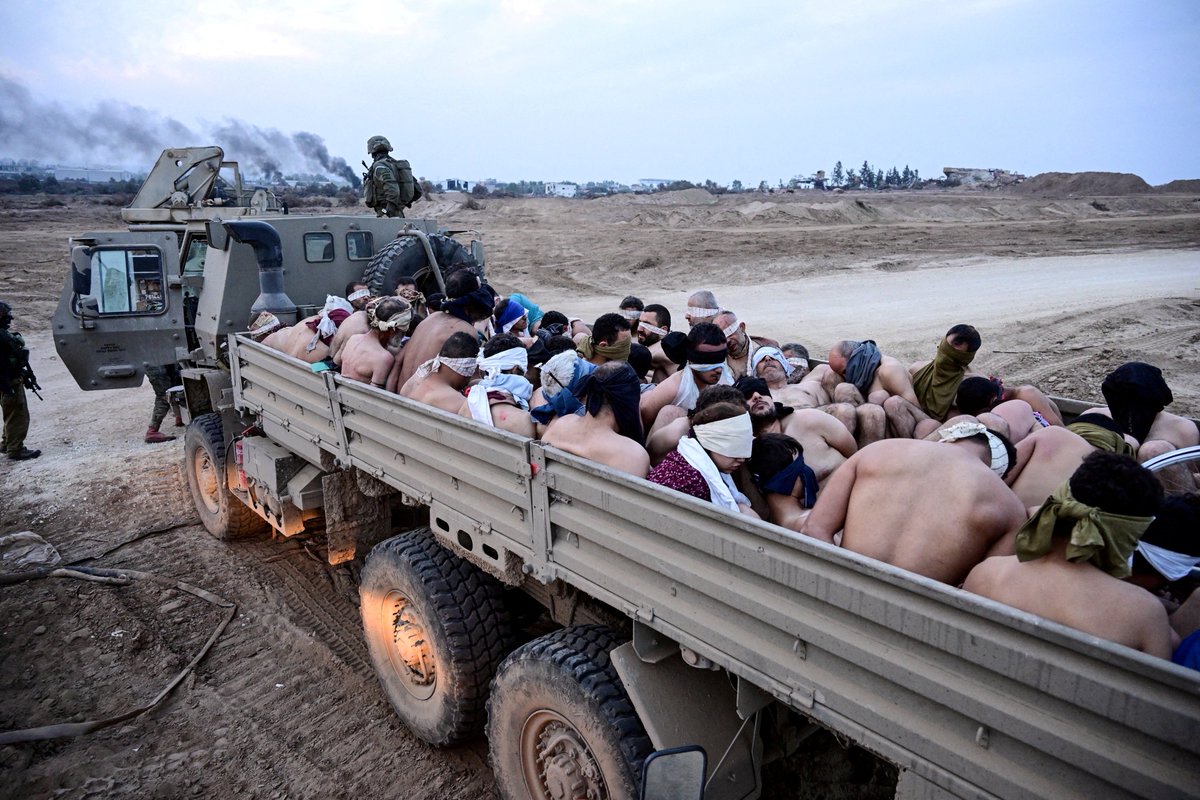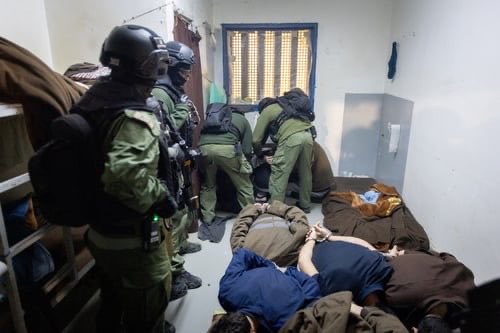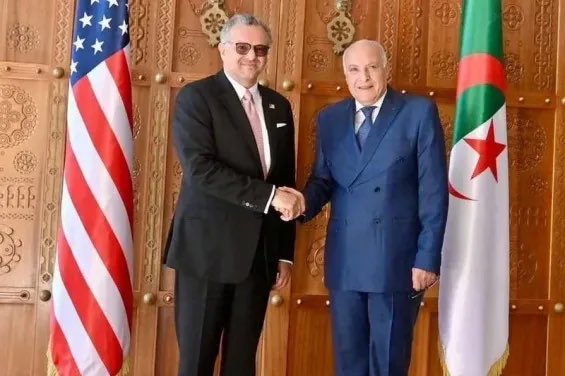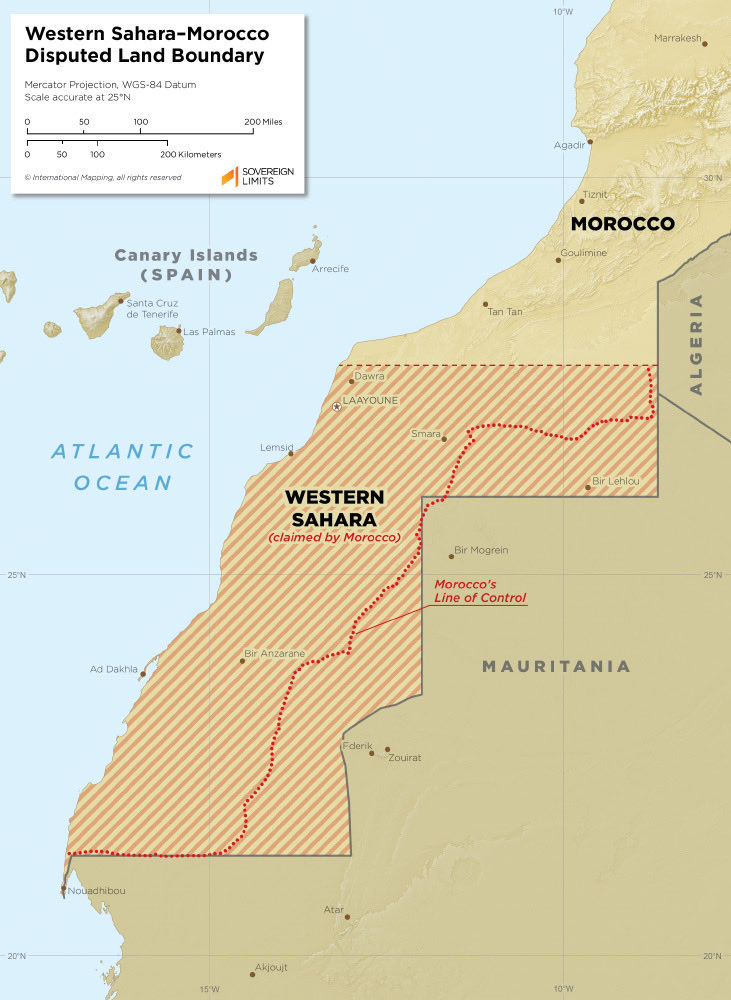📌 Axios: U.S. Drafts UN Plan for Gaza Security Force
The U.S. has circulated a draft UN Security Council resolution to establish an International Security Force (ISF) in Gaza for at least two years, Axios reports. The U.S.-led mission would have a broad mandate to govern and secure Gaza through 2027, operating “as an enforcement force, not a peacekeeping force,” with troop contributions expected from Egypt, Türkiye and Indonesia, and deployment targeted for January 2026.
The ISF would be asked to:
▪️ secure borders
▪️protect civilians
▪️train a new Palestinian police force,
▪️and oversee Gaza’s demilitarization, including disarming Hamas.
It would operate under a unified command approved by the Trump-chaired Board of Peace (BOP) — branded by Palestinians as “Balfour 2.” Israel and the U.S. envision the BOP as Gaza’s governing authority, effectively reviving a form of foreign colonial guardianship that all Palestinian factions uniformly rejected in a joint statement after unity meetings on October 23–24.
The U.S. has circulated a draft UN Security Council resolution to establish an International Security Force (ISF) in Gaza for at least two years, Axios reports. The U.S.-led mission would have a broad mandate to govern and secure Gaza through 2027, operating “as an enforcement force, not a peacekeeping force,” with troop contributions expected from Egypt, Türkiye and Indonesia, and deployment targeted for January 2026.
The ISF would be asked to:
▪️ secure borders
▪️protect civilians
▪️train a new Palestinian police force,
▪️and oversee Gaza’s demilitarization, including disarming Hamas.
It would operate under a unified command approved by the Trump-chaired Board of Peace (BOP) — branded by Palestinians as “Balfour 2.” Israel and the U.S. envision the BOP as Gaza’s governing authority, effectively reviving a form of foreign colonial guardianship that all Palestinian factions uniformly rejected in a joint statement after unity meetings on October 23–24.
https://x.com/DropSiteNews/status/1985485153922400544

Full text of US proposal as published by Axios’ Barak Ravid
_
FULL TEXT OF THE DRAFT SECURITY COUNCIL RESOLUTION ON THE GAZA INTERNATIONAL FORCE:
The Security Council,
Welcoming the Comprehensive Plan to End the Gaza Conflict of 29 September 2025 (“Comprehensive Plan”), and applauding the states that have signed, accepted, or endorsed it, and further welcoming the historic Trump Declaration for Enduring Peace and Prosperity of 13 October 2025 and the constructive role played by the United States of America, the State of Qatar, the Arab Republic of Egypt, and the Republic of Turkey, in having facilitated the ceasefire in the Gaza Strip;
Determining that the situation in the Gaza Strip threatens regional peace and the security of neighboring states, and noting prior relevant Security Council resolutions relating to the situation in the Middle East, including the Palestinian question;
Endorses the Comprehensive Plan, acknowledges the parties have accepted it, and calls on all parties to implement it in its entirety, in good faith and without delay;
Welcomes the establishment of the Board of Peace (BoP) as a transitional governance administration with international legal personality that will set the framework and coordinate funding for the redevelopment of Gaza pursuant to the Comprehensive Plan, until such time as the Palestinian Authority has satisfactorily completed its reform program, the satisfaction of which shall be acceptable to the BoP;
Underscores the importance of the full resumption of humanitarian aid in cooperation with the BoP into the Gaza Strip through cooperating organizations, including the United Nations, the International Committee of the Red Cross, and the Red Crescent, and ensuring such aid is used solely for peaceful purposes and not diverted by armed groups, with any organization found to have misused such aid deemed ineligible for continued or future assistance;
Authorizes Member States participating in the BoP and the BoP to:
(A) enter into such arrangements as may be necessary to achieve the objectives of the Comprehensive Plan, including those addressing privileges and immunities of personnel of the force established in paragraph 7 below; and
(B) establish operational entities with, as necessary, international legal personality and transactional authorities for the performance of its functions, including:
(1) the implementation of a transitional governance administration, including the supervising and supporting of a Palestinian technocratic, apolitical committee of competent Palestinians from the Strip—as envisioned by the Final Communique of the Emergency Summit Conference of the Extraordinary Arab Summit—which shall be responsible for day-to-day operations of Gaza’s civil service and administration;
(2) the reconstruction of Gaza and of economic recovery programs;
(3) the coordination and supporting of and delivery of public services and humanitarian assistance in Gaza;
(4) any measures to facilitate the movement of persons in and out of Gaza, in a manner consistent with the Comprehensive Plan; and
(5) any such additional tasks as may be necessary to support and implement the Comprehensive Plan;
Understands that the operational entities referred to in paragraph 4 above will operate under the authority and oversight of the BoP and are to be funded through voluntary contributions from donors and BoP funding vehicles and governments;
Calls upon the World Bank and other financial institutions to facilitate and provide financial resources to support the reconstruction and development of Gaza as it would provide to its members, including through the establishment of a dedicated trust fund for this purpose and governed by donors;
(Part 1/2)
_
FULL TEXT OF THE DRAFT SECURITY COUNCIL RESOLUTION ON THE GAZA INTERNATIONAL FORCE:
The Security Council,
Welcoming the Comprehensive Plan to End the Gaza Conflict of 29 September 2025 (“Comprehensive Plan”), and applauding the states that have signed, accepted, or endorsed it, and further welcoming the historic Trump Declaration for Enduring Peace and Prosperity of 13 October 2025 and the constructive role played by the United States of America, the State of Qatar, the Arab Republic of Egypt, and the Republic of Turkey, in having facilitated the ceasefire in the Gaza Strip;
Determining that the situation in the Gaza Strip threatens regional peace and the security of neighboring states, and noting prior relevant Security Council resolutions relating to the situation in the Middle East, including the Palestinian question;
Endorses the Comprehensive Plan, acknowledges the parties have accepted it, and calls on all parties to implement it in its entirety, in good faith and without delay;
Welcomes the establishment of the Board of Peace (BoP) as a transitional governance administration with international legal personality that will set the framework and coordinate funding for the redevelopment of Gaza pursuant to the Comprehensive Plan, until such time as the Palestinian Authority has satisfactorily completed its reform program, the satisfaction of which shall be acceptable to the BoP;
Underscores the importance of the full resumption of humanitarian aid in cooperation with the BoP into the Gaza Strip through cooperating organizations, including the United Nations, the International Committee of the Red Cross, and the Red Crescent, and ensuring such aid is used solely for peaceful purposes and not diverted by armed groups, with any organization found to have misused such aid deemed ineligible for continued or future assistance;
Authorizes Member States participating in the BoP and the BoP to:
(A) enter into such arrangements as may be necessary to achieve the objectives of the Comprehensive Plan, including those addressing privileges and immunities of personnel of the force established in paragraph 7 below; and
(B) establish operational entities with, as necessary, international legal personality and transactional authorities for the performance of its functions, including:
(1) the implementation of a transitional governance administration, including the supervising and supporting of a Palestinian technocratic, apolitical committee of competent Palestinians from the Strip—as envisioned by the Final Communique of the Emergency Summit Conference of the Extraordinary Arab Summit—which shall be responsible for day-to-day operations of Gaza’s civil service and administration;
(2) the reconstruction of Gaza and of economic recovery programs;
(3) the coordination and supporting of and delivery of public services and humanitarian assistance in Gaza;
(4) any measures to facilitate the movement of persons in and out of Gaza, in a manner consistent with the Comprehensive Plan; and
(5) any such additional tasks as may be necessary to support and implement the Comprehensive Plan;
Understands that the operational entities referred to in paragraph 4 above will operate under the authority and oversight of the BoP and are to be funded through voluntary contributions from donors and BoP funding vehicles and governments;
Calls upon the World Bank and other financial institutions to facilitate and provide financial resources to support the reconstruction and development of Gaza as it would provide to its members, including through the establishment of a dedicated trust fund for this purpose and governed by donors;
(Part 1/2)
Authorizes Member States working with the BoP and the BoP to establish a temporary International Stabilization Force (ISF) in Gaza to deploy under unified command acceptable to the BoP, with forces contributed by participating States, in close consultation and cooperation with the Arab Republic of Egypt and the State of Israel, and to use all necessary measures to carry out its mandate consistent with international law, including international humanitarian law.
The ISF shall work with Israel and Egypt, without prejudice to their existing agreements, along with the newly trained and vetted Palestinian police force, to help secure border areas; stabilize the security environment in Gaza by ensuring the process of demilitarizing the Gaza Strip, including the destruction and prevention of rebuilding of military, terror, and offensive infrastructure, as well as the permanent decommissioning of weapons from non-state armed groups; protect civilians, including humanitarian operations; train and provide support to the vetted Palestinian police forces; coordinate with relevant States to secure humanitarian corridors; and undertake such additional tasks as may be necessary in support of the Comprehensive Plan.
The ISF shall:
(A) assist the BoP in monitoring the implementation of the ceasefire in Gaza, and enter into such arrangements as may be necessary to achieve the objectives of the Comprehensive Plan; and
(B) operate under the strategic guidance of the BoP and will be funded through voluntary contributions from donors and BoP funding vehicles and governments;
Decides the BoP and international civil and security presences authorized by this resolution shall remain authorized until 31 December 2027, subject to further action by the Council, and any further reauthorization of the ISF shall be in full cooperation and coordination with Egypt and Israel and other Member States continuing to work with the ISF;
Calls upon Member States and international organizations to work with the BoP to identify opportunities to contribute personnel, equipment, and financial resources to its operating entities and the ISF, to provide technical assistance to its operating entities and the ISF, and to give full recognition to its legal acts and documents;
Decides to remain seized of the matter..
—END—
The ISF shall work with Israel and Egypt, without prejudice to their existing agreements, along with the newly trained and vetted Palestinian police force, to help secure border areas; stabilize the security environment in Gaza by ensuring the process of demilitarizing the Gaza Strip, including the destruction and prevention of rebuilding of military, terror, and offensive infrastructure, as well as the permanent decommissioning of weapons from non-state armed groups; protect civilians, including humanitarian operations; train and provide support to the vetted Palestinian police forces; coordinate with relevant States to secure humanitarian corridors; and undertake such additional tasks as may be necessary in support of the Comprehensive Plan.
The ISF shall:
(A) assist the BoP in monitoring the implementation of the ceasefire in Gaza, and enter into such arrangements as may be necessary to achieve the objectives of the Comprehensive Plan; and
(B) operate under the strategic guidance of the BoP and will be funded through voluntary contributions from donors and BoP funding vehicles and governments;
Decides the BoP and international civil and security presences authorized by this resolution shall remain authorized until 31 December 2027, subject to further action by the Council, and any further reauthorization of the ISF shall be in full cooperation and coordination with Egypt and Israel and other Member States continuing to work with the ISF;
Calls upon Member States and international organizations to work with the BoP to identify opportunities to contribute personnel, equipment, and financial resources to its operating entities and the ISF, to provide technical assistance to its operating entities and the ISF, and to give full recognition to its legal acts and documents;
Decides to remain seized of the matter..
—END—
• • •
Missing some Tweet in this thread? You can try to
force a refresh



